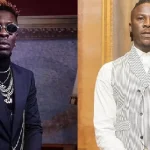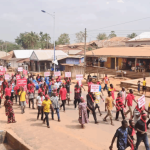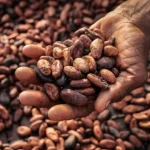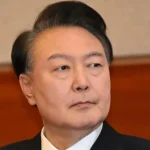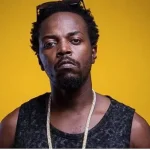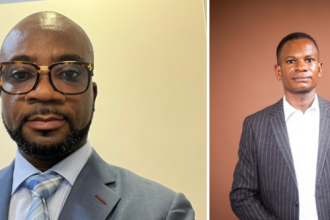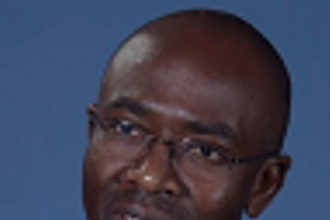The 2024 general elections, the contentious issue of LGBTQ+ rights has taken center stage. President Nana Addo Dankwa Akufo-Addo’s handling of the “Proper Human Sexual Rights and Ghanaian Family Values” bill, which seeks to criminalize LGBTQ+ activities, has sparked significant criticism and raised concerns.
Many believe the president is leveraging this issue as a political tool, trying to balance international pressure with domestic expectations to secure advantages for his party’s presidential candidate, Vice President Mahamudu Bawumia.
Western nations, including the United States, have advocated for LGBTQ+ rights globally, linking foreign aid and developmental assistance to the adoption of progressive policies.
Many African leaders view this as an imposition of foreign values, which has led to resistance based on cultural and religious beliefs.
In Ghana, this tension has been particularly evident, with many citizens and politicians framing the anti-LGBTQ+ bill as a defense of African values against what they perceive as Western moral imperialism.
Donald Trump’s re-election further complicates the situation as President of the United States, which could shift the dynamics of global LGBTQ+ advocacy.
I aim to analyze how Trump’s victory might influence the LGBTQ+ debate in Ghana and assess the claim that President Nana Addo is exploiting this issue for electoral gain.
The “Proper Human Sexual Rights and Ghanaian Family Values” bill has sparked national debate since its introduction in Parliament.
This legislation, which receives bipartisan support along with backing from religious and traditional leaders, proposes stringent penalties for individuals involved in or promoting LGBTQ+ activities. President Akufo-Addo has delayed signing the bill into law, despite its passage in Parliament. He cites legal challenges and international pressures as the reasons for his hesitation.
This delay has triggered protests, criticism from political leaders, and accusations of undermining Ghanaian cultural and religious values.
Speaker of Parliament Alban Bagbin has publicly criticized the president’s stance, describing it as “contemptuous” towards parliamentary authority. Former President John Dramani Mahama, who is also the presidential candidate for the NDC, has expressed his concerns regarding the issue of LGBTQ.
President Akufo-Addo’s reluctance to sign the bill can be partly attributed to Ghana’s economic dependence on international aid. Western donors, including the World Bank and the IMF, have tied financial assistance to the promotion of LGBTQ+ rights and human rights more broadly.
Ghana is facing an economic crisis and has recently secured an IMF bailout. This economic dependency has placed the government in a precarious situation, requiring it to balance domestic pressures with international expectations.
Observations indicate that President Akufo-Addo’s postponement in signing the bill may be a deliberate political maneuver. He intends to utilize the LGBTQ+ topic to gain international backing while appearing to respect local sentiments.
By delaying a decision, the president has succeeded in keeping the discussion ongoing, serving as a diversion from other critical issues, such as the economic situation, corruption allegations, and governance shortcomings.
Some assert that this postponement is part of a wider tactic by the NPP to sway the elections in favor of Dr. Mahamudu Bawumia, the NPP’s presidential candidate. There are also claims that the Akufo-Addo administration is leveraging the LGBTQ+ issue to obtain approval from Western nations, aiming for economic and diplomatic support that could influence the election results.
Trump’s Victory: A Game-Changer?
The international landscape shifted dramatically in November 2024 with Donald Trump’s re-election as U.S. president. Known for his strong opposition to LGBTQ+ rights, Trump’s administration is likely to ease U.S. pressure on countries like Ghana to adopt pro-LGBTQ+ policies.
This development undermines President Akufo-Addo’s presumed strategy of leveraging the LGBTQ+ debate to gain favor with Western. With Trump in power, the incentives for aligning with liberal Western policies on LGBTQ+ rights are significantly diminished.
The opposition National Democratic Congress (NDC) has seized on the controversy to accuse the New Patriotic Party (NPP) of betraying Ghanaian values for political and economic gains.
Recent opinion polls, including those from Global InfoAnalytics and the Economic Intelligence Unit (EIU), indicate a tightly contested race, with predictions favoring a victory for the opposition NDC in both the presidential and majority parliamentary seats. However, the NPP remains optimistic, referencing its internal polls that suggest a possibility of a runoff election.
The LGBTQ+ issue has intensified an already heated political rivalry. The NDC has framed the debate as a symbol of the NPP’s disconnect from the electorate, while the NPP aims to portray itself as a responsible steward of Ghana’s economic and international interests.
At the heart of this controversy lies a fundamental question: is President Nana Addo prioritizing personal and partisan interests over national values? The allegations that he is using the LGBTQ+ issue as a strategic bait underscore a broader concern about the intersection of politics, morality, and diplomacy in Ghana.
The evolving global context, marked by Trump’s presidency and shifting donor priorities, adds another layer of complexity. Whether Nana Addo’s strategy, if it exists, will succeed remains uncertain. What is clear, however, is that the LGBTQ+ debate will continue to shape Ghana’s political landscape, influencing not only the 2024 elections but the nation’s broader socio-political trajectory.
The president’s reluctance to take a definitive stance has fostered an atmosphere of mistrust, leading many to question his commitment to the values he once promised to uphold.
The LGBTQ+ debate serves as a microcosm of the broader challenges facing the nation. It illustrates the tensions between cultural identity and global interconnectedness, economic dependency and political sovereignty, as well as leadership and political expediency.
For President Akufo-Addo, the time for ambiguity is over. The electorate deserves clarity and decisive action on the LGBTQ+ issue and other pressing matters.
Ultimately, the 2024 elections will serve as a referendum not only on the New Patriotic Party (NPP) and the National Democratic Congress (NDC) but also on the values that define Ghana as a nation. The outcome will shape the country’s trajectory for years to come, offering an opportunity to reaffirm its commitment to democracy, sovereignty, and the will of its people.



